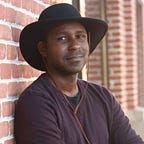Taking our (friends) and going home
Social’s newest app — Peach — exposes faulty tech thinking, that we should be talking to only to people we already know.
Networks are nifty. When you do the work to cultivate one, that is. For some of us, that work starts in high school or college. After a few jobs, you cobble together a nice network of folks who you stay in and out of touch with over the years. When you work in the tech space, those relationships are the signal boost you need to find jobs, stay connected and create community. I know that without the folks I’ve met through intentional communities over the years, I’d been in a much different (and poorer) professional place.
Peach is a new social network that lets you connect to people you know in a hybrid Slack/Twitter-type fashion. Upon launch, I was struck by the lack of discovery options. You’re able to see friends of friends if you allow that visibility and that’s super if you’re the type of person who likes befriending strangers, but the implicit notion here is you’re going to see people you know amongst your friends of friends because communities are small. When you live in a major city, so many location-based apps really make sense because there’s a critical mass and volume that make these tools viable.
The Exposure Problem
So many of the challenges associated with staffing diverse teams goes well beyond just cultural diversity. It’s often a mere matter of finding people even faintly connected to someone outside of their immediate pay grade besides the people who clean their apartment or some old friend they’ve lost touch with but say “HBD” to on Facebook once a year.
Peach is part of a fallacy that the best people for everything are the people we already know. It’s reflective of a wider thinking that permeates so much of what gets built in our social culture. It’s the idea that we already know everyone we need to know, so there’s no need for discovery. And when there are attempts for discovery, you’re just fed the same bullshit celebrity cultures that congregate around every industry regardless of its size.
Passing the buck
I’m all for putting your own people on. But there’s got to be a way to extend and expand our bandwidth to be stewards outside of our own circles. Years ago, I tried to build a proof of concept that would connect snow plow drivers in different states to talk about tactics for deicing and plowing. It didn’t work because it was like 2006, but it began with a simple premise.
“There are surely people out there with this knowledge. I bet they’d like to connect, they just don’t know how. How do we make that possible?”
That same thinking has driven me in my own career. I went from being positively unknown in my professional community to well known. I’ve never stopped thinking I was the guy working in an obscure place, who had ideas but wasn’t sure if they made any sense. I blogged less to reach out, I was blogging because 1) I’d done it for a long time, just not for work reasons and 2) I wanted to find out if my theories were bunk and learn from other people.
What the hell does this have to do with my new place for cat GIFs?
Look, share with who you want. I’m all for playing in a space that’s less noisy than Twitter or even Tumblr. The beauty of those tools has been finding people you’d never meet. Hell, that was even the beauty of Livejournal.
Finding people who are into the stuff you’re into and sharing with them, learning from them and growing together. This is probably an especially important thing for marginalized people, because the lack of representation we see of ourselves in roles outside of the mainstream can often make you embrace the fallacy that “I can’t do that because I’ve never seen anyone like me doing it.”
I don’t really care whether Peach lives or dies. What I’m concerned about is how we all think about product and the ways we consider audiences that aren’t directly connected to us. It seems the more data we’re surrounded by, the less empathy we show with creating things because the challenges don’t affect us directly.
We can do better.
